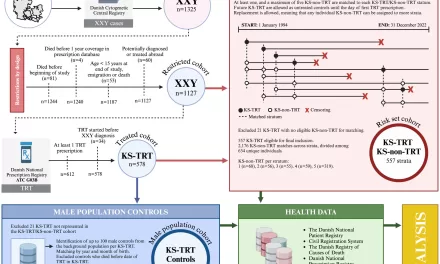A groundbreaking study led by Western researchers has revealed that intranasal oxytocin, a hormone associated with empathy, could be a game-changer in treating apathy, a debilitating symptom of frontotemporal dementia (FTD). Published in The Lancet Neurology, the research highlights hope for patients and caregivers grappling with one of the most challenging aspects of FTD.
FTD: A Devastating Neurodegenerative Disorder
Frontotemporal dementia affects the frontal and temporal lobes of the brain, impairing language, behavior, and decision-making. Apathy, a core symptom of FTD, strips patients of interest in hobbies, relationships, and even basic interactions with loved ones, profoundly affecting their quality of life and that of their families.
Dr. Elizabeth Finger, professor at the Schulich School of Medicine & Dentistry and scientist at Lawson Research Institute, spearheaded the study, which marks the largest trial to date targeting FTD symptoms. “Apathy is often the first symptom to develop in FTD and one of the most devastating. This study represents a significant step toward finding effective treatments,” Finger noted.
Study Overview
Conducted across 11 sites in Canada and the United States from 2018 to 2023, the phase 2a/b trial involved 74 patients with FTD. Participants received intranasal oxytocin treatments twice daily every third day for six weeks. Caregivers measured changes in apathy using the Neuropsychiatric Inventory (NPI), a tool assessing the severity and frequency of neuropsychiatric symptoms.
Promising Results
The study found that oxytocin treatment led to significant improvements in apathy compared to placebo. While the effect was mild, caregivers reported meaningful behavioral changes, such as patients initiating conversations or performing small gestures of care, like making coffee for their spouse.
“These small improvements have a profound impact. For caregivers, seeing glimmers of the person they love returning is life-changing,” said Kristy Coleman, lead study author and research operations lead at Schulich Medicine & Dentistry and Lawson.
A Breakthrough Decades in the Making
This research builds on over 15 years of work by Dr. Finger, who was inspired by the stories of caregivers emphasizing the urgent need for symptom management. While the results are not a cure, they offer a significant step toward addressing the challenges of FTD.
“Symptomatic treatment in frontotemporal dementia is an underexplored field,” Coleman explained. “This study shows the potential of targeted therapies like oxytocin to make a difference.”
Looking Ahead
The study underscores the need for continued research into FTD treatments. As one of the most common forms of early-onset dementia, affecting individuals as young as 40, FTD demands innovative solutions to improve the lives of patients and their families.
Disclaimer: The findings represent a step forward in managing FTD symptoms, but further studies are needed to validate the effectiveness and explore the broader implications of oxytocin treatment.
For more information:
Kristy K. L. Coleman et al., Intranasal oxytocin for apathy in people with frontotemporal dementia (FOXY): a multicentre, randomised, double-blind, placebo-controlled, adaptive, crossover, phase 2a/2b superiority trial, The Lancet Neurology (2025). DOI: 10.1016/S1474-4422(24)00456-3.












